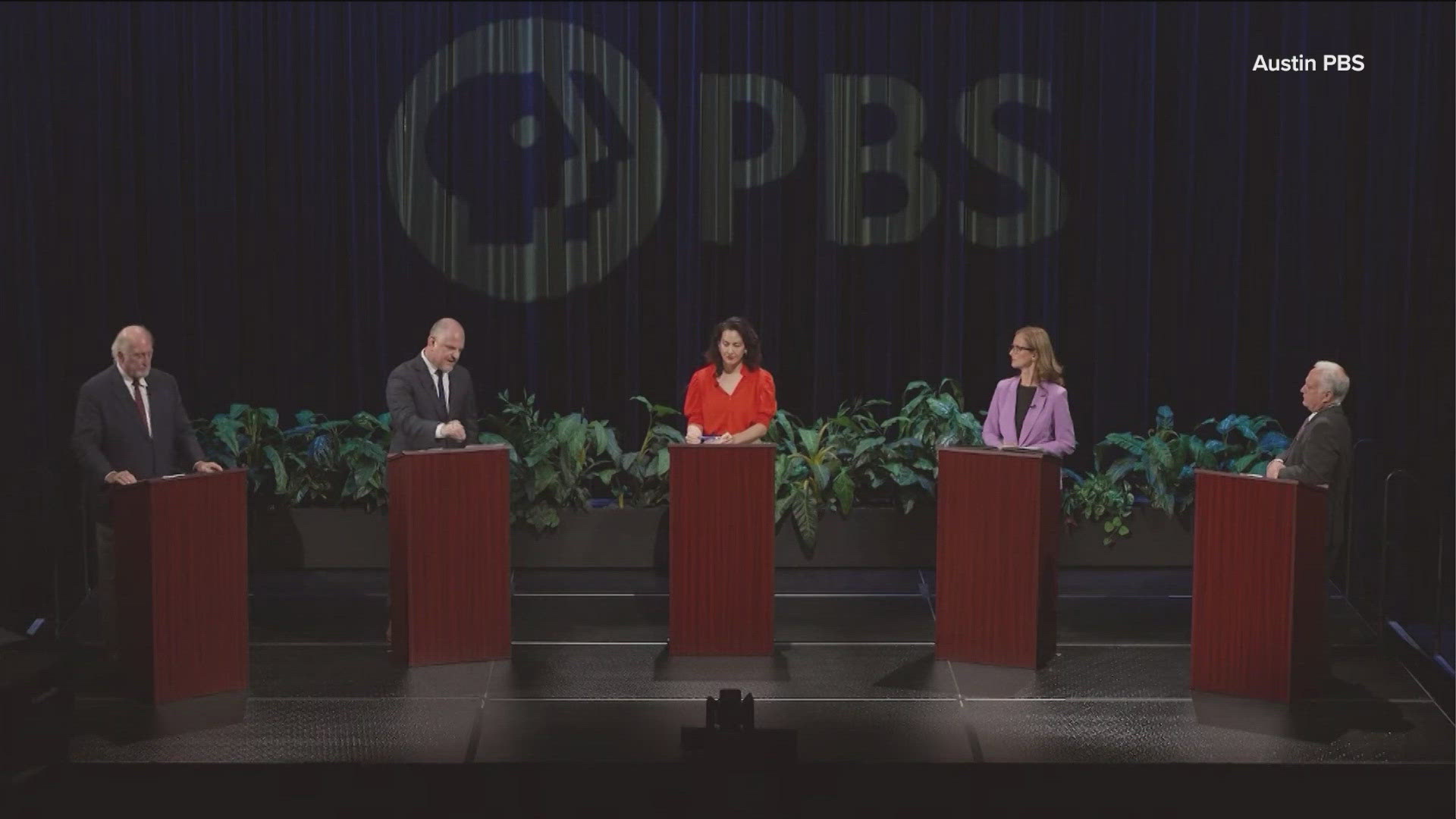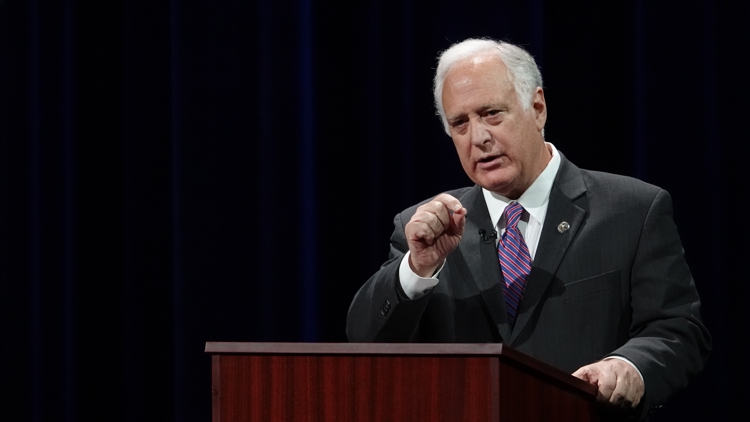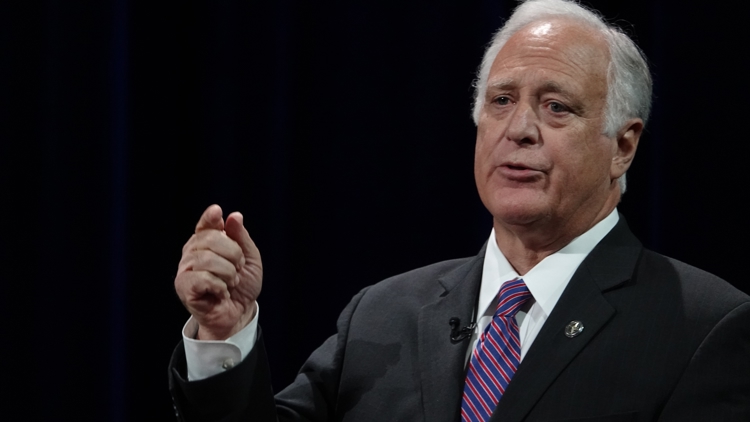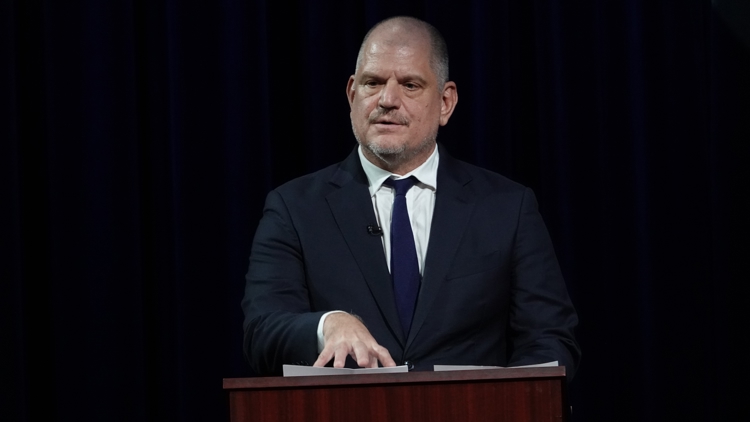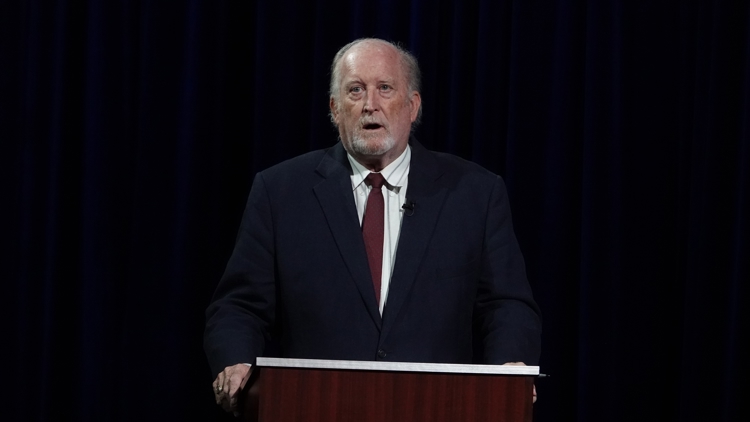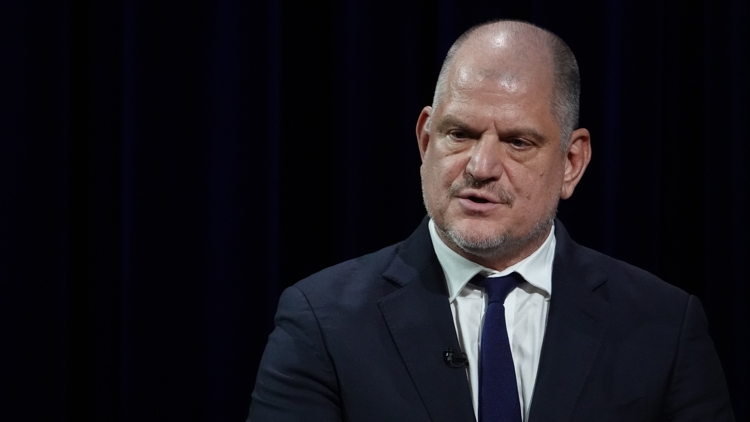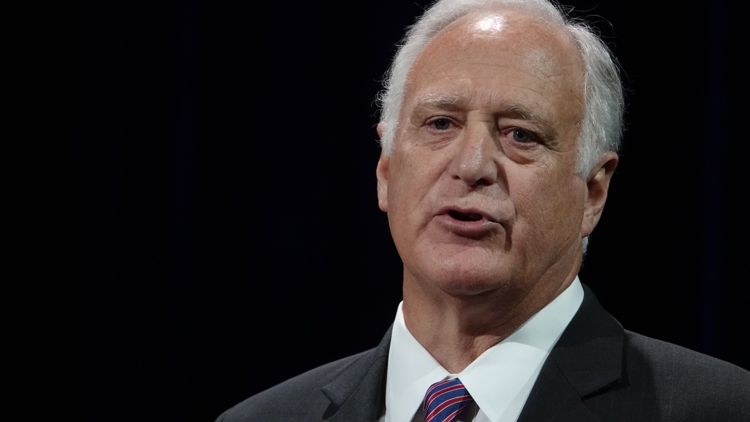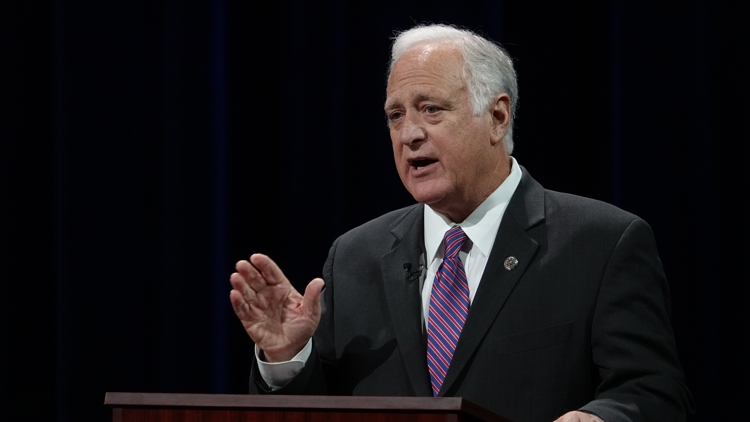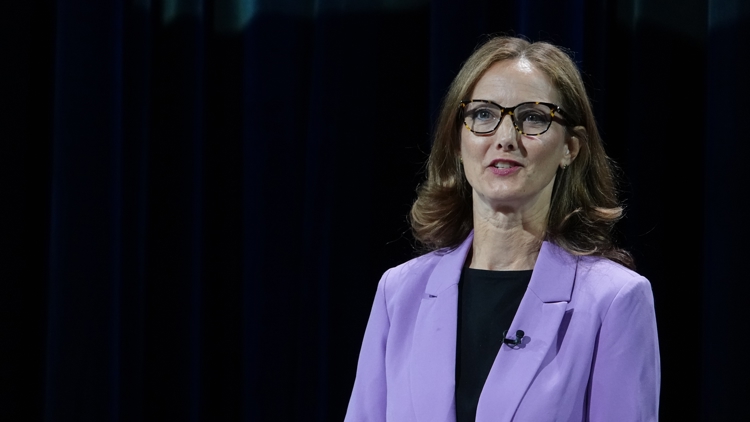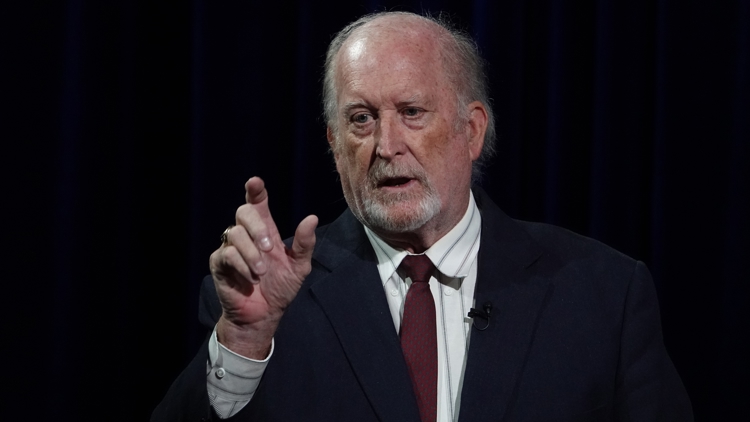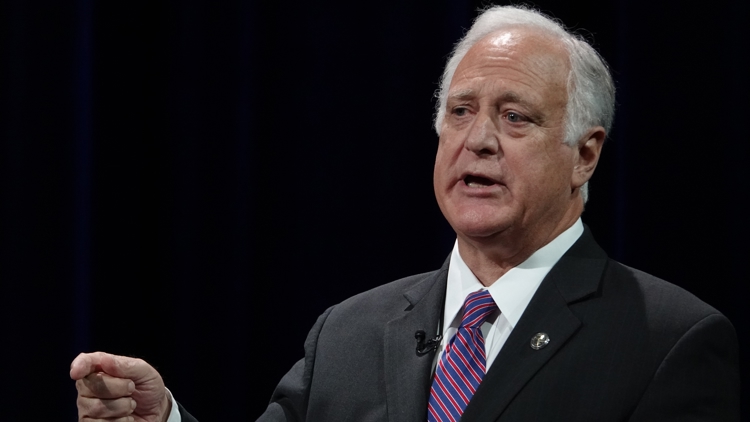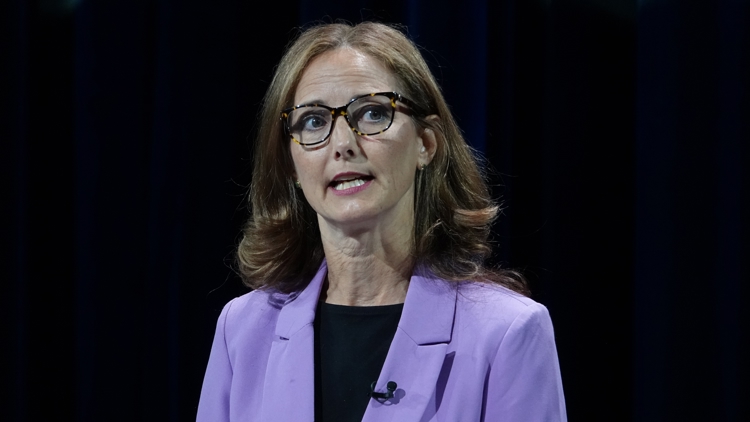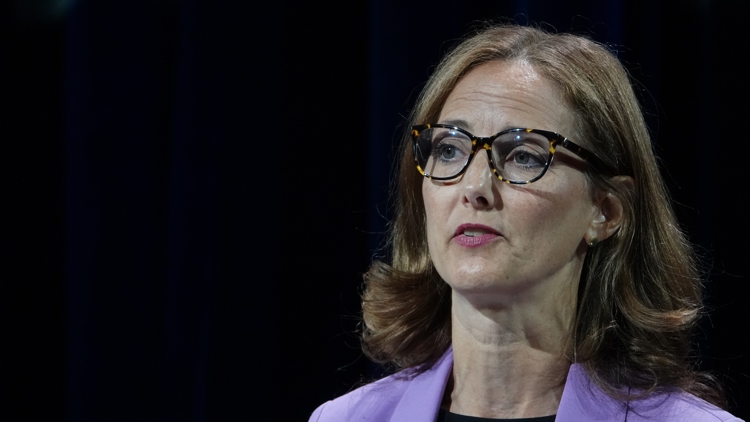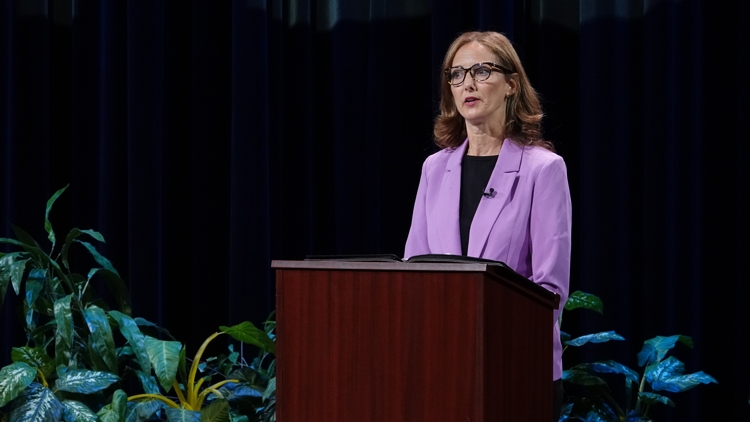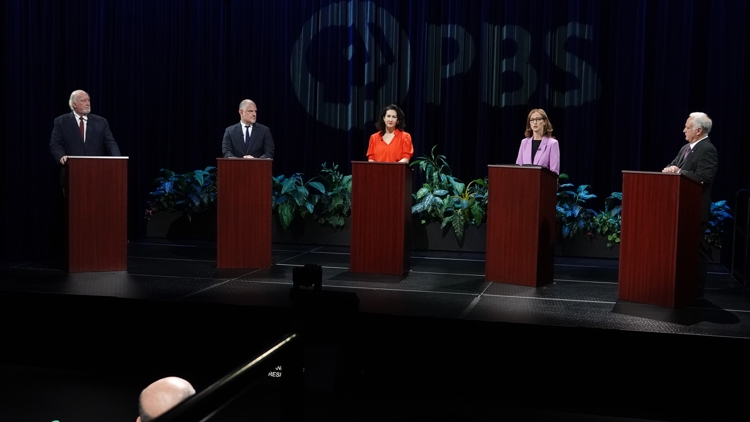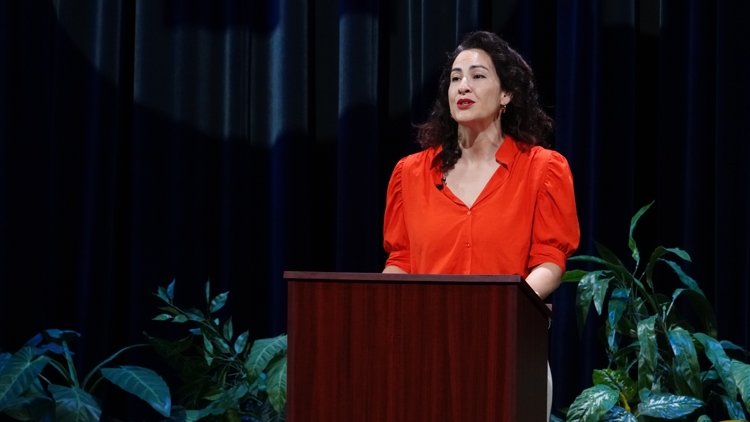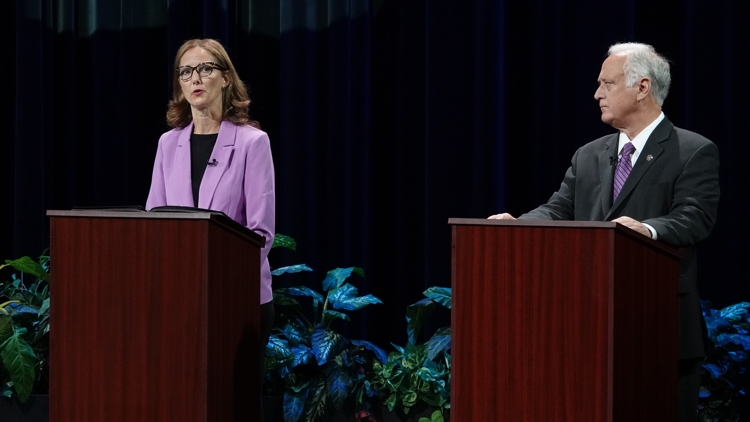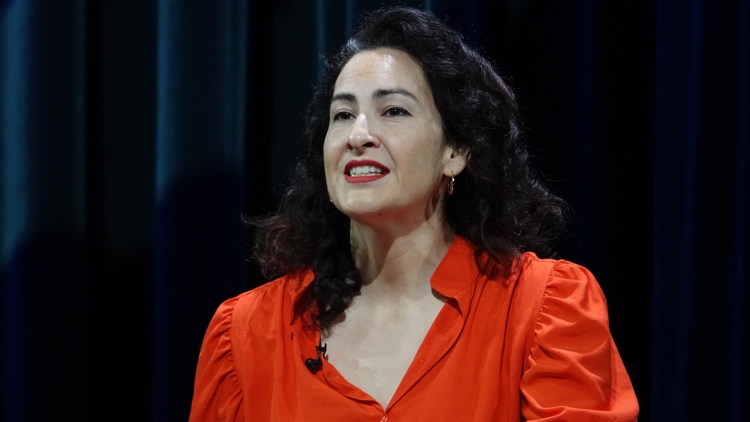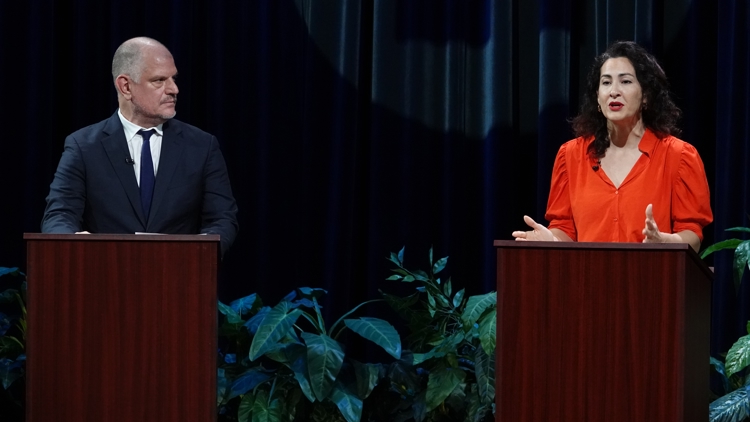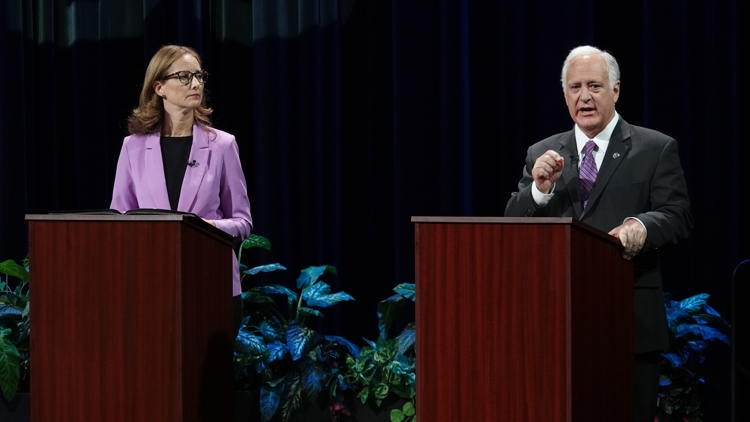AUSTIN, Texas — For the first time this election cycle, all of the candidates vying to be Austin's mayor gathered for a forum to make their arguments on why they deserve the job.
Mayor Kirk Watson, who is seeking another term in office, is facing four other candidates: Doug Greco, former city councilmember Kathie Tovo, Carmen Llanes-Pulido and Jeffery Bowen.
A number of issues were up for debate, including affordability, community policing and the future of the Austin Police Department (APD).
Each candidate had 90 seconds to answer how they would address each issue. There were no opening or closing statements and no rebuttals.
Candidate arguments on the police contract
A tentative agreement was recently reached between the city and the Austin Police Association (APA) after more than a year of contract negotiations. The $218 million deal is for five years and includes an over 28% raise throughout that time period.
Arguments were made on the lack of transparency, limited details in the contract and the G-file, which is a confidential personnel file on each officer. Each candidate agreed on the need to recruit and retain more police officers, the need for better pay and the importance of achieving a long-term contract.
Bowen said he leans in favor of the contract but has concerns.
"The fact that we've been without a contract for several years, yes, I’m leaning very much towards the approval of it. But we need to find out what are the devil’s in the details in there," Bowen said. "But again, not knowing what all of the details since we just recently found out about this, that's going to be very interesting to sit down and look at that document."
Greco immediately pointed to Prop A, which is the widely voter-approved measure that would make the G-file public.
"It appears that the city is proposing to trade away the public will on transparency in a key measure," Greco said. "There was a piece in the Police Oversight Act called the G-file, which voters approved should be done away with. The courts affirmed it, and the city has now put that back in the in the contract."
Mayor Watson emphasized that the G-file will be eliminated.
"I've always taken the position and will continue to take the position that the contract with our police officers and the police union needs to contain Prop A. That needs to happen. This tentative agreement does that," Watson said.
Llanes-Pulido focused on the divide between the community and the police, as well as the need for transparency.
"Asking tough questions like the reserves and our police department from years of funding vacant positions and implementing the will of the people without having to be sued to do so," Llanes Pulido said.
Tovo pointed to the voters' will and reiterated the need of transparency.
"We need to make sure that the city manager makes [the police contract] available as soon as possible so that the members of the public and the members of the council can really take a look at it and understand what is in that contract in terms of the accountability measures," Tovo said.
Addressing affordability
During the forum, candidates addressed how they would tackle reducing housing costs for low-income families.
Earlier this year, the city passed HOME Initiative Phases 1 and 2, which focus on a goal to add more housing and increase supply within family-zoned areas in Austin. Candidates shared concerns over the initiative, while Watson stood firm on how it will improve affordability.
"We have plenty of units that are too expensive for people," Llanes-Pulido said. "We need to keep people where they are and produce truly affordable housing."
Greco said Austin "is a fast-growing city for millionaires" and said that more housing was needed at all levels of income.
"We are where our income inequality is increasing and our percentage of Black and Latino residents is decreasing," Greco said. "We need a mayor that's going to fight for the working class, not for millionaires."
"A key part of this is if we're providing greater supply, we're also having a positive impact on displacement," Tovo said.
Bowen explained the possible impacts of HOME.
"The fact that you wanted to split up a lot into three separate lots, that's got to go through a different process," Bowen said. "And there are certain sections of HOME that are not even being incorporated right now because of the Wildland Urban Interface (WUI). So I have a lot of concerns with it."
Other issues
Other issues addressed were the opioid crisis in Travis County, the Austin Animal Center and how to reduce crime.
Travis County faced its largest opioid outbreak in years earlier this year. The candidates all agreed that Narcan supply should be boosted and focus should be placed on hot spot areas.
The Austin Animal Center, meanwhile, has dealt with capacity issues and failed leadership.
When it comes to crime, the conversation circled back to recruiting and retaining officers to increase community policing.
KVUE spoke with Watson after the forum, and he said he appreciated the questions asked and felt confident.
"There's been a two-year term, and we've done so much in two years. But I need another four years to complete," Watson said. "But the bottom line to it is, I feel very good and I'm excited about it."
Austinites will be able to cast their ballots for mayor on Nov. 5.

